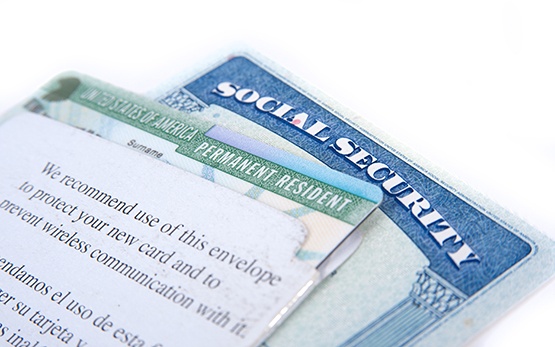
How Does Having a Green Card Benefit You?
October 20, 2021An identity card indicating lawful permanent residence in the United States is referred to as a green card in slang. It has been green since its inception, though it has changed colors over the years. Green cards are issued by the United States Department of Citizenship and Immigration Services. They are called Permanent Resident Cards or PRCs.
Every year, thousands of immigrants meet certain strict requirements in order to receive green cards from the United States. Some of these requirements include:
- Relatives of U.S. citizens or permanent residents
- Employers in the U.S. offer you a job
- Investing a lot of money in a U.S. business
- By winning the lottery for diversity visas
- Having lived as a refugee, asylee, or asylee for more than one year in the United States
- A special immigrant can belong to several different categories.
Upon receiving the actual card, when should you expect it?
As soon as your permanent residency application is approved, you will not receive a card. An immigrant visa is required for entry into the U.S., and a temporary passport stamp, I-551, is given to the immigrants.
The U.S. government will provide immigrants with a letter of approval when they adjust their status.
An actual green card is mailed by mail, typically several weeks later, in both cases.
A Green Card Comes With Certain Rights and Limitations
It is possible to immigrate permanently to the United States with a green card. The green card can be used to apply for many government jobs (some of which are reserved for U.S. citizens). Furthermore, green card holders enjoy a number of benefits including access to health care, education, and more.
As a “preference relative,” both your spouse and unmarried children can also petition for a green card, but they will need to wait, probably for a few years, due to annual limits on such visas.
If you desire U.S. citizenship at a later time, you may retain your citizenship in your native country. Most green card holders have a time period of five years, but people married to and living with a U.S. citizen for three years have a time period of three years.
While a green card does give you some security, it is not completely reliable. There are several grounds of deportability in Section 237 of the Immigration and Nationality Act (INA), including, for example, committing a crime or violating the law, failing to alert USCIS about changes of address, or doing anything else that matches one of those grounds.
As a result, green card holders who leave the country and attempt to return may fall under the even broader grounds of inadmissibility in Section 212 of the I.N.A. This is especially relevant for those who spend six months or more abroad or commit crimes while abroad.
Ten years is the expiration date of the Green Card
U.S. Citizenship and Immigration Services (USCIS) used to issue green cards without expiration dates, but now they require you to apply for a new card every ten years. No worries, your permanent residence card is not expiring, just the card proving your residency.
On the other hand, if you fail to renew your green card, you may encounter problems with USCIS if it discovers that you don’t have your green card with you when the expiration date approaches.
The ten-year age limit on green cards is different from the two-year age limit on green cards held by conditional residents (persons who obtain their status due to an investment or due to a recent marriage to a U.S. citizen). A legal status in the United States can be revoked by the expiration of that card. In order to become a permanent resident, conditional residents must file Form I-751 (for marriage-based cases) or I-829 (for investment-based cases) 90 days before their status expires.


:max_bytes(150000):strip_icc()/GettyImages-1195219587-747a1bf6cdc8424aa2a3a063b8241377.jpg)








